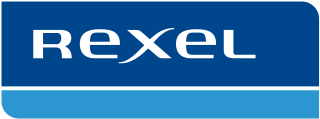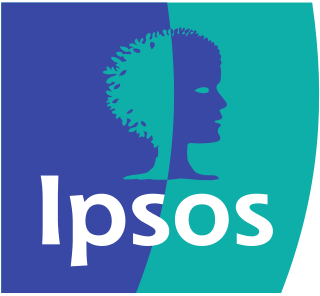
Aon plc is a global professional services firm that offers a range of risk-mitigation products. Aon has approximately 50,000 employees across 120 countries.
Thales S.A., trading as Thales Group is a French multinational company that designs, develops and manufactures electrical systems as well as devices and equipment for the aerospace, defence, transportation and security sectors. The company is headquartered in Paris' business district, La Défense, and its stock is listed on the Euronext Paris.

TotalEnergies SE is a French multinational integrated energy and petroleum company founded in 1924 and is one of the seven supermajor oil companies. Its businesses cover the entire oil and gas chain, from crude oil and natural gas exploration and production to power generation, transportation, refining, petroleum product marketing, and international crude oil and product trading. TotalEnergies is also a large-scale chemicals manufacturer.

International Data Group is a market intelligence and demand generation company focused on the technology industry. IDG, Inc.'s mission is centered around supporting the technology industry through research, data, marketing technology, and insights that help create and sustain relationships between businesses.

CAE Inc. is a Canadian manufacturer of simulation technologies, modelling technologies and training services to airlines, aircraft manufacturers, healthcare specialists, and defence customers. CAE was founded in 1947, and has manufacturing operations and training facilities in 35 countries.

Rexel S.A. is a French company specializing in the distribution of electrical, heating, lighting and plumbing equipment, but also in renewable energies and energy efficiency products and services.

Axa S.A. is a French multinational insurance corporation headquartered in the 8th arrondissement of Paris. It also provides investment management and other financial services via its subsidiaries. As of 2023, it is the largest financial services company by revenue in France, and the 4th largest French company.

PA Media is a multimedia news agency. It is part of PA Media Group Limited, a private company with 26 shareholders, most of whom are national and regional newspaper publishers. The biggest shareholders include the Daily Mail and General Trust, News UK, and Informa.

Apax Partners LLP is a British private equity firm, headquartered in London, England. The company also operates out of six other offices in New York, Hong Kong, Mumbai, Tel Aviv, Munich and Shanghai. As of March 2024, the firm had raised and advised funds of approximately US$77 billion. Apax Partners is one of the oldest and largest private equity firms operating on an international basis.

Ipsos Group S.A. is a multinational market research and consulting firm with headquarters in Paris, France. The company was founded in 1975 by Didier Truchot, Chairman of the company, and has been publicly traded on the Paris Stock Exchange since 1 July 1999.

Sierra Wireless is a Canadian multinational wireless communications equipment designer, manufacturer and services provider headquartered in Richmond, British Columbia, Canada. It also maintains offices and operations in the United States, Korea, Japan, Taiwan, India, France, Australia and New Zealand.
Frasers Group plc is a British retail, sport and intellectual property group, named after its ownership of the department store chain House of Fraser.

TTI, Inc., is a distributor of electronic components that include capacitors, resistors, connectors, switches, relays, circuit protection, electromagnetics, discrete semiconductors, sensors, RF modules, and antennas.
MidOcean Partners is a New York–based alternative asset management firm that specializes in mid-sized private equity and alternative leveraged investments.
Meltwater is an online media monitoring company. It is listed on the Oslo Stock Exchange. The company was founded in Oslo, Norway, by Jørn Lyseggen, in 2001 and is headquartered in San Francisco, California, with additional offices across Europe, North America, Asia/Pacific, Australia, and Africa. The company employs around 2,200 people and has approximately 27,000 clients internationally. In February 2023, Meltwater reported US$439 million in revenue for the full 2022 fiscal year.

Payoneer Global Inc. is an American financial services company that provides online money transfer, digital payment services and provides customers with working capital.

Paramount Group is a Global Aerospace & Defence group of companies operating in the global defence, internal security and peacekeeping industries. Established in South Africa in 1994, it offers a range of military aircraft, armoured vehicles, maritime systems, equipment and training to governments.

Anthem Sports & Entertainment is a Canadian multinational media company based in Toronto, Ontario and founded by Leonard Asper.
Arcadis NV is a global design, engineering and management consulting company based in the Zuidas, Amsterdam, Netherlands. It currently operates in excess of 350 offices across 40 countries. The company is a member of the Next 150 index.














